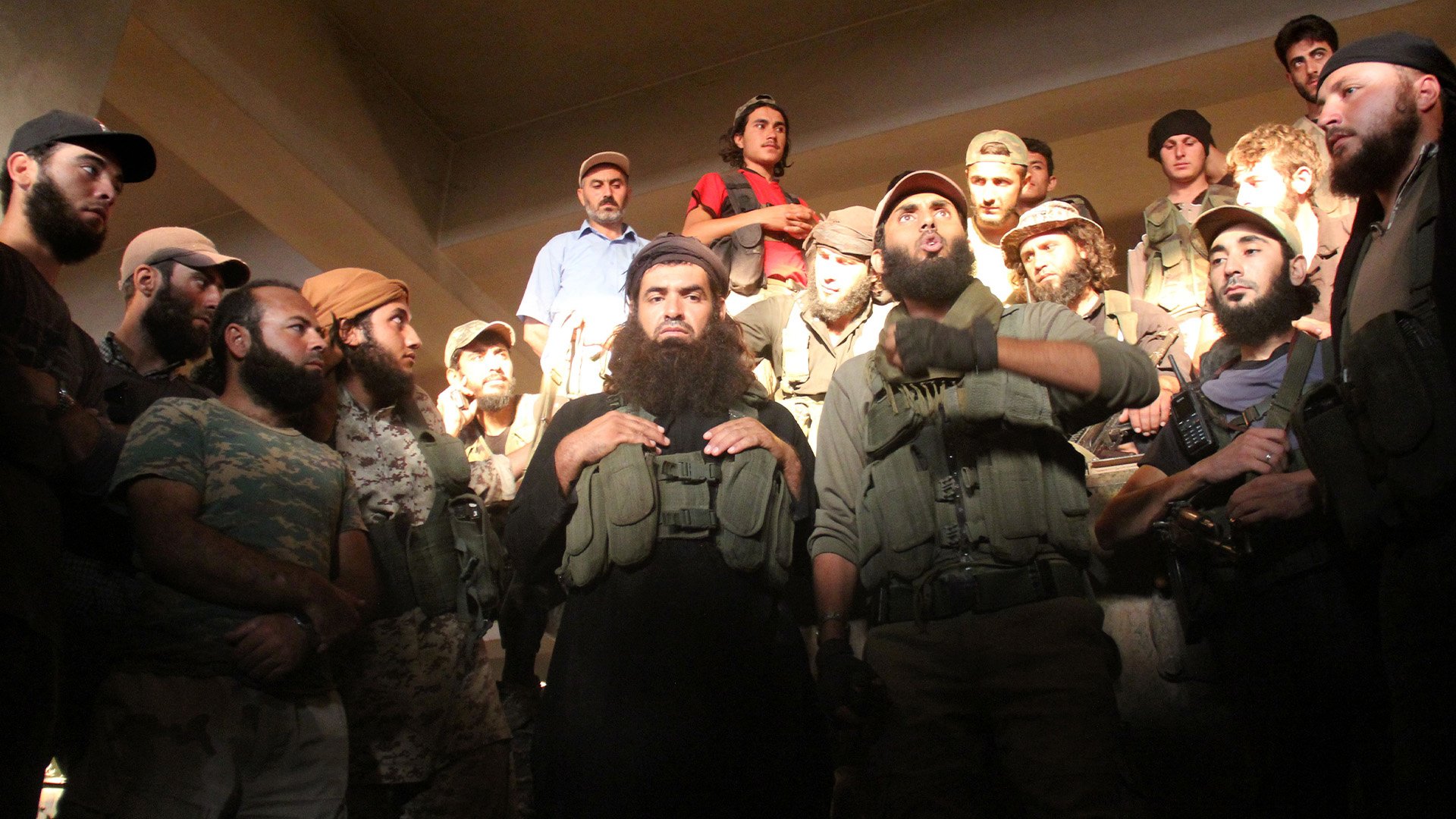
Fighters for Al-Nusra Front — renamed Fateh al-Sham Front after breaking from al Qaeda — listen to a speech at an armament school after they recaptured two military academies and a third military position south of Aleppo on Aug. 6, 2016. Photo by Omar Haj Kadour/AFP via Getty Images.
A Chicago truck driver who tried to help a fellow immigrant from Uzbekistan join Islamist terrorists in Syria will spend six more years behind bars.
On Wednesday, Aug. 10, in Brooklyn, US District Court Judge William F. Kuntz II sentenced Dilshod Khusanov to 11 years of imprisonment for attempting to provide material support to the Islamic State group and al-Nusra Front. Khusanov, 36, pleaded guilty to the felony on Oct. 18, 2021.
Khusanov has spent five years inside Metropolitan Detention Center Brooklyn on pretrial confinement. The married father of three children will be deported to Uzbekistan when he’s released.
In a prepared statement released in the wake of the sentencing, US Attorney Breon Peace said Khusanov was punished for “providing blood money to support violent jihad in Syria and Iraq.”
“The significant punishment will deter those who are considering aiding foreign fighters determined to join terrorist organizations like ISIS and Al-Nusra Front,” Peace continued. “Prosecuting those who assist terrorist organizations, here and abroad, will always be a priority of this office.”
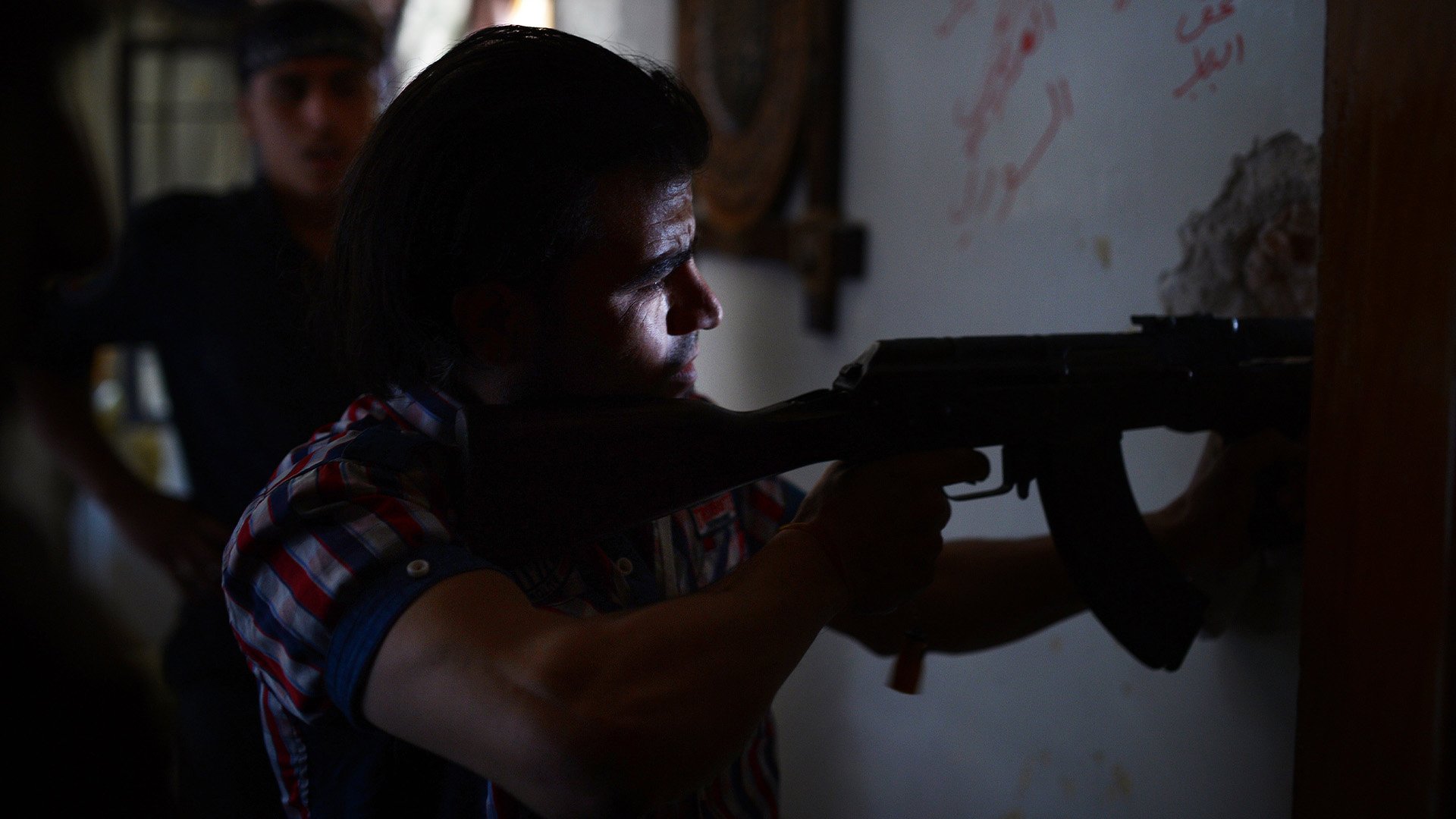
A Syrian rebel monitors the movement of government forces in the Salaheddine district of the northern Syrian city of Aleppo on April 12, 2013. A major coalition of Islamist rebels fighting the regime of President Bashar al-Assad denounced al-Nusra Front’s pledge of allegiance to al-Qaeda, urging insurgents to unite behind moderate Islam. Photo by Dimitar Dilkoff/AFP/Getty Images.
Khusanov’s attorneys declined comment when contacted by Coffee or Die Magazine.
In 2014, six years after he arrived in the US on a student visa, Khusanov became ensnared in a federal crackdown on “chayxona.”
That's an Uzbek term for “tea party” that became synonymous with raising money for Muslims yearning to fight against the Syrian dictatorship of Bashar al-Assad.
The US opposed the regime in Damascus but was also fighting against some of its enemies, terrorist organizations such as the Islamic State group and al-Nusra, a militia once tied to al-Qaeda.
The dragnet triggered the convictions of Khusanov, a legal permanent resident of the US, and six other defendants: Akmal Zakirov, Abdurasul Juraboev, Akhror Saidakhmetov, Abror Habibov, Azizjon Rakhmatov, and Dilkhayot Kasimov.
Only Habibov awaits sentencing.
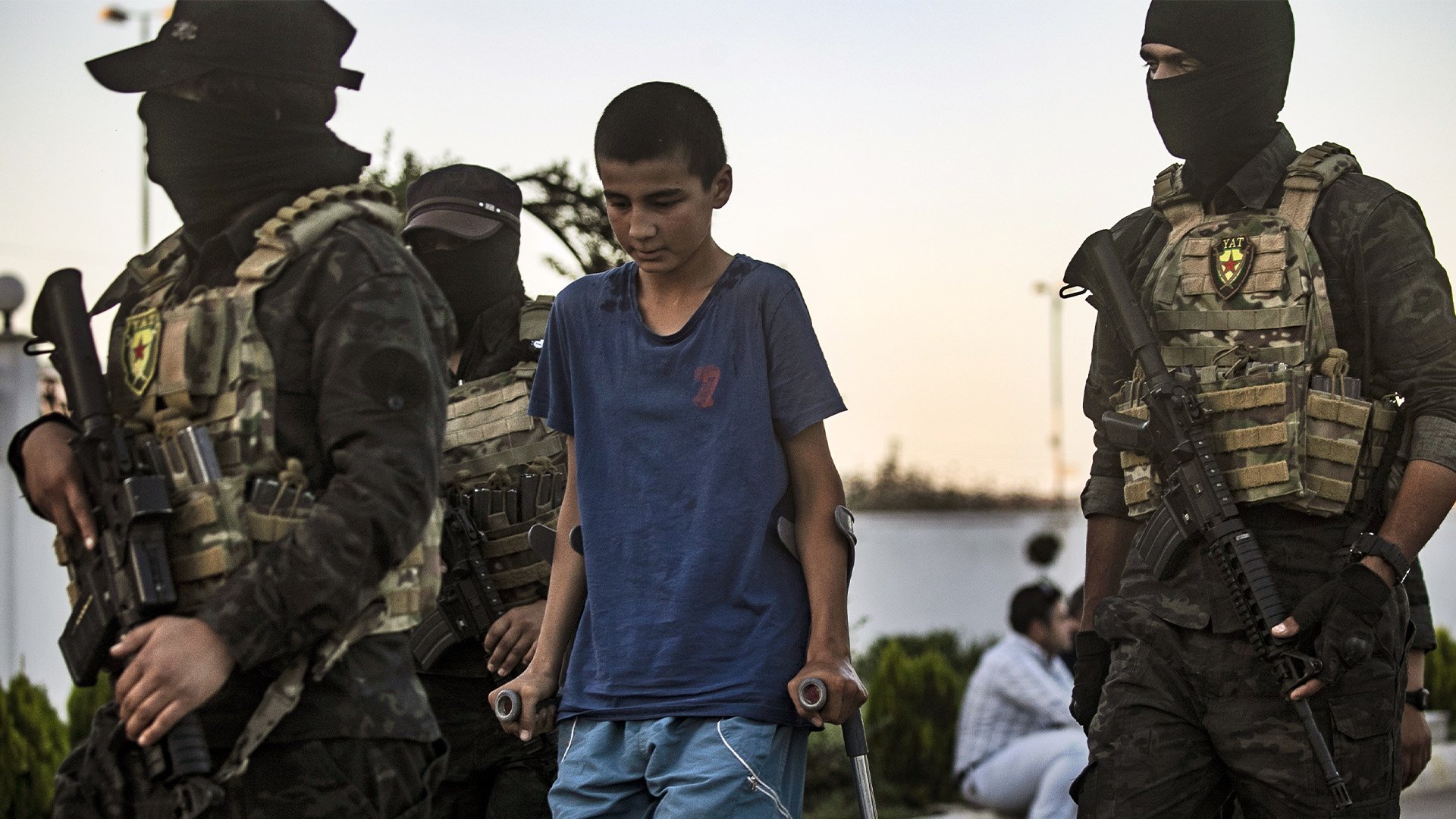
US-backed Syrian Democratic Forces escort a boy in the northern Kuridish Syrian city of Qamishli as Uzbek women and children linked to the Islamic State group are handed over to diplomats from the Central Asian country for repatriation on May 29, 2019. Hundreds of Uzbeks are believed to have joined militants fighting in Iraq and Syria. Photo by Delil Souleiman/AFP /Getty Images.
Although some of the conspirators were connected to plots to assassinate President Barack Obama and blow up the amusement park on Coney Island, Khusanov was only linked to a plan by the Brooklyn duo of Juraboev and Saidakhmetov to wage jihad in Syria.
They hit others up to raise the money to get them there. Saidakhmetov was slated to be the first to fly overseas, but federal agents scooped him up at John F. Kennedy International Airport in early 2015, before his flight departed for Turkey. The feds then began to roll up the network.
Khusanov’s involvement in the conspiracy puzzled his family and friends, according to letters they wrote to the judge. Unlike others in the chayxona, he loved the US, strongly supported law enforcement here, and appreciated America’s tolerance of religious expression.
After his 2017 arrest, Khusanov insisted that he also passionately disliked the Islamic State group and al-Nusra but reluctantly saw the militias as useful enemies pitted against Syria’s Assad regime.
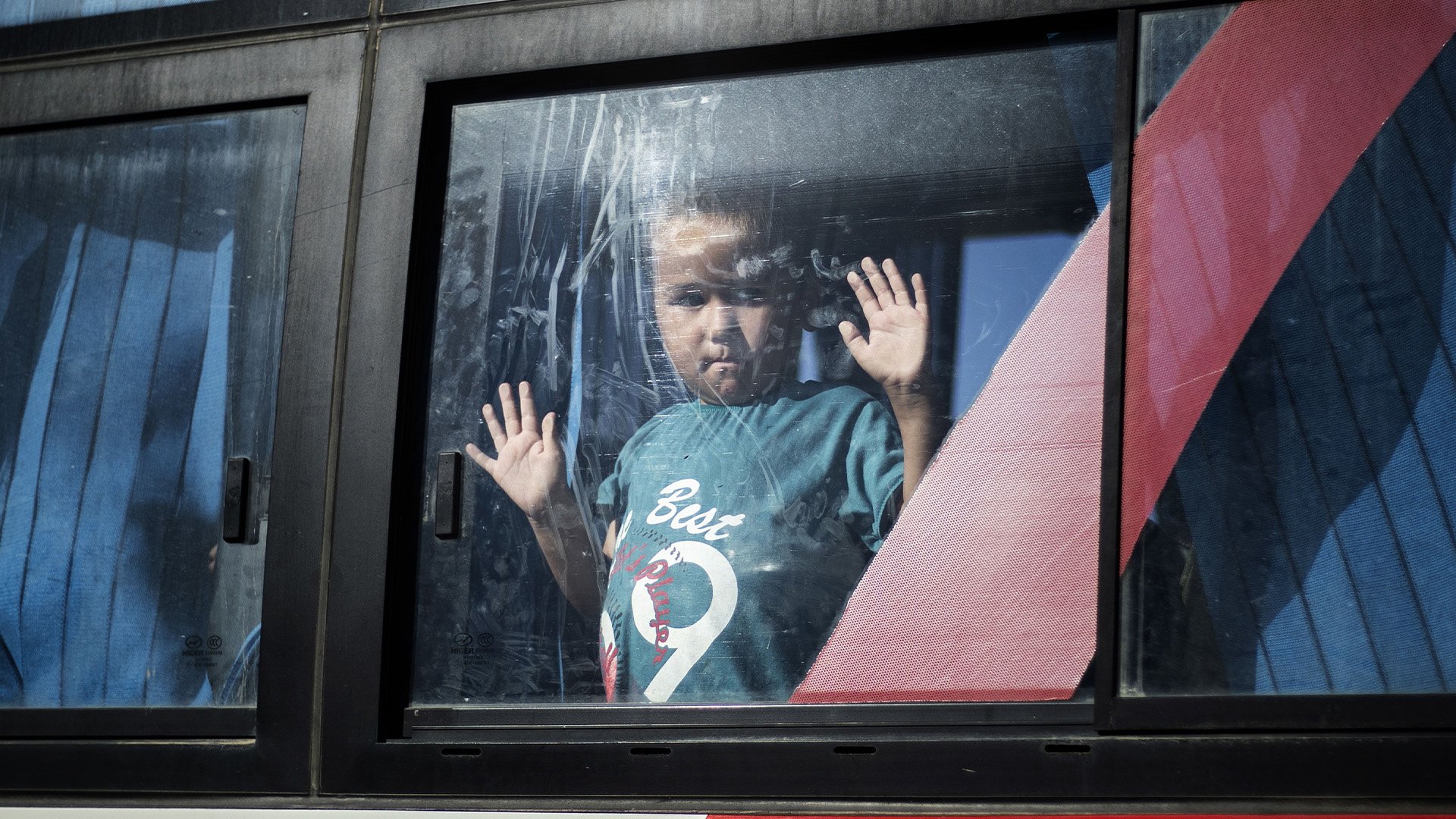
A boy peeps through the window of a bus in the northern Kurdish Syrian city of Qamishli as Uzbek women and children linked to the Islamic State group are handed over to diplomats from the Central Asian country for repatriation on May 29, 2019. Photo by Delil Souleiman/AFP/Getty Images.
Federal investigators determined that Khusanov donated between $200 and $400 to Saidakhmetov’s travel fund, but he also solicited help from others on the Brooklyn man’s behalf.
In a recent jailhouse letter to the judge, Khusanov conceded this was a terrible decision, especially because his family lost his income as an over-the-road hauler.
His paychecks were earmarked to fund his autistic son’s therapy.
“When I ask myself a question if I learned my lesson, the first thing that comes to my mind is my handicap son, my family and my aging parents whom I caused a lot of pain and anguish,” Khusanov wrote. “I hardly find the right words to express the state of my heart and mind. I wish I could describe how much I missed my whole family and how much I want to be with them, to hug my parents whom I haven't seen for more than 11 years, to kiss my wife who I have not been in privacy with for five years and to hold my kids and play with them, who barely can recognize me.”
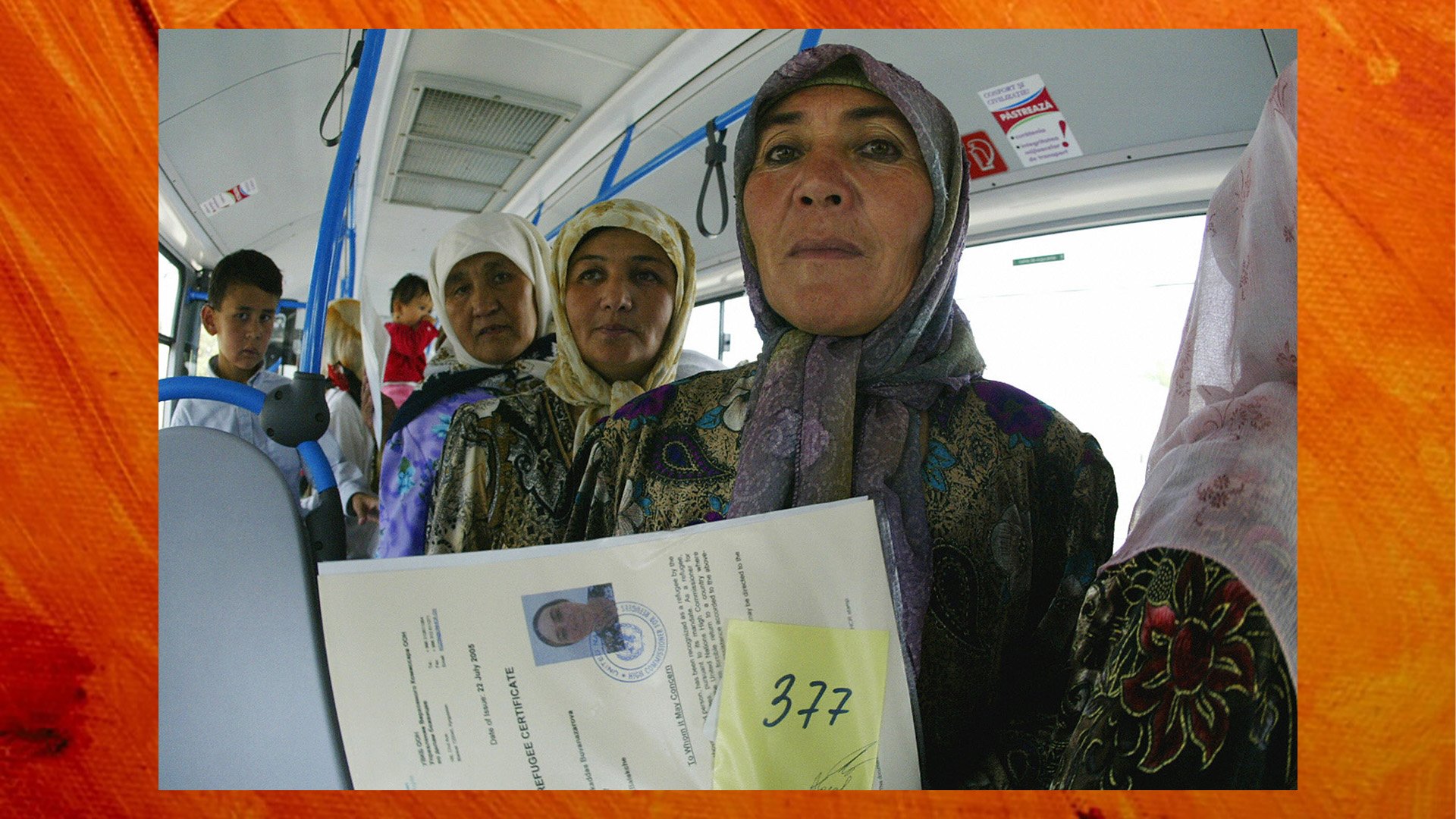
An Uzbek woman holds her passport as she gets on a bus carrying refugees at the airport in Timisoara, Romania, on July 29, 2005. Roughly 450 refugees fled a government crackdown in Uzbekistan. The departure of the Uzbek refugees through Kyrgyzstan and Romania was organized by the UN High Commissioner for Refugees after the bloody repression by the Uzbek government of an insurrection that killed up to 700 people. Photo by AFP/Getty Images.
Khusanov’s attorneys begged the judge for leniency, but federal prosecutors wanted the man to spend at least 11 years behind bars, four less than the maximum sentence.
Authorities said that Khusanov knew Saidakhmetov had expressed support for the Islamic State group and anti-American views, and he was going to join a terrorist enemy of the US. A stiff sentence, they added, would send a message to others seeking to indirectly fund terrorist organizations.
In a joint filing with the court, Assistant US Attorneys Douglas M. Pravda, J. Matthew Haggans, and Jonathan E. Algor wrote that Khusanov’s crime “is both serious and grave, especially when considering the horrific acts and destruction perpetrated by the terrorist organizations through the hands of foreign fighters.”
The judge agreed with the prosecutors.
Read Next: Feds: Iran Tried To Hire Cartel Hitman To Kill Ex-National Security Adviser John Bolton

Carl Prine is a former senior editor at Coffee or Die Magazine. He has worked at Navy Times, The San Diego Union-Tribune, and Pittsburgh Tribune-Review. He served in the Marine Corps and the Pennsylvania Army National Guard. His awards include the Joseph Galloway Award for Distinguished Reporting on the military, a first prize from Investigative Reporters & Editors, and the Combat Infantryman Badge.
BRCC and Bad Moon Print Press team up for an exclusive, limited-edition T-shirt design!
BRCC partners with Team Room Design for an exclusive T-shirt release!
Thirty Seconds Out has partnered with BRCC for an exclusive shirt design invoking the God of Winter.
Lucas O'Hara of Grizzly Forge has teamed up with BRCC for a badass, exclusive Shirt Club T-shirt design featuring his most popular knife and tiomahawk.
Coffee or Die sits down with one of the graphic designers behind Black Rifle Coffee's signature look and vibe.
Biden will award the Medal of Honor to a Vietnam War Army helicopter pilot who risked his life to save a reconnaissance team from almost certain death.
Ever wonder how much Jack Mandaville would f*ck sh*t up if he went back in time? The American Revolution didn't even see him coming.
A nearly 200-year-old West Point time capsule that at first appeared to yield little more than dust contains hidden treasure, the US Military Academy said.












